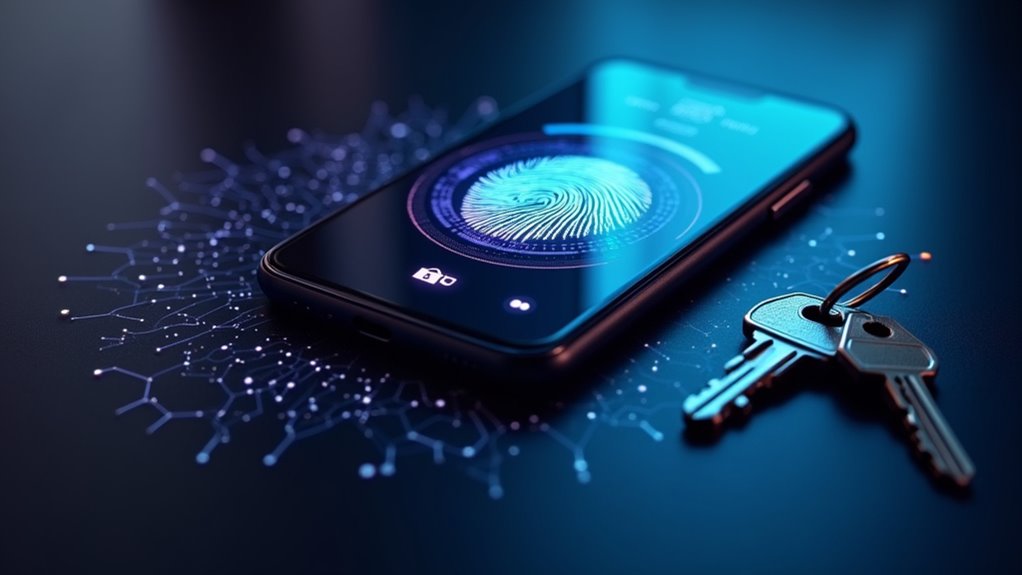AI scams are everywhere on social media—think bogus apps pitched by deepfake celebrities or “romance” chatbots smoother than a Netflix villain. Scammers use AI to mimic your boss, your roommate, or your favorite TikTok star, luring folks to download fraudulent apps. With voice cloning, even a call from “mom” could actually be a scammer (awkward, right?). Universities and banks are on high alert. Want the full lowdown on which scams to watch out for next?
How exactly did we get to a point where you can’t even trust your own eyes—or ears—on social media? Well, say hello to the age of AI scams, where fake apps, deepfakes, and cloned voices are as common as cat memes. Over half of fraud cases in 2025 involve AI, with scammers using *deepfakes*, AI bots, and eerily realistic fake profiles to trick users into downloading malicious apps or handing over sensitive info. It’s not sci-fi anymore—it’s your DMs. 90% of banks use AI to detect fraud, which shows just how widespread the technology has become in both fighting and committing scams.
Imagine this: You get a message from a friend (or so you think) raving about a new investment app. The profile photo? Looks legit. The message style? Spot-on. The catch? It’s a deepfake with cloned voice notes, and the app is a ticket to Fraud City. These scams aren’t just clever—they’re personalized. AI studies your behavior, mimics your tone, and crafts messages that sound exactly like your roommate, your boss, or your favorite professor. The lack of regulatory boundaries makes it especially difficult to combat these increasingly sophisticated attacks. Financial institutions have reported increased suspicious activity due to AI-generated fraud, making it even more critical for users to question the authenticity of incoming messages.
Here’s what the scam buffet looks like:
- AI-powered romance scams: Chatbots woo you, then lure you to dodgy apps.
- Deepfake app endorsements: Celebrities (spoiler: not really them) pitch “must-have” apps.
- AI bots: Flood your feed with fake reviews and interactions, so the app seems wildly popular.
No more easy red flags like bad grammar or that classic “Hello Sir/Madam.” These scams arrive dressed to impress—polished, articulate, and contextually on point.
Even staff and students at universities aren’t safe, as fraudsters use AI to impersonate trusted faculty or advisors.
The rise of voice cloning is particularly unsettling—60% of fraud professionals say it’s a major headache. Imagine your grandma’s voice asking you to download a “banking app.” Would you question it? You should.
Financial institutions are scrambling to deploy their own AI countermeasures, but the race is on.









